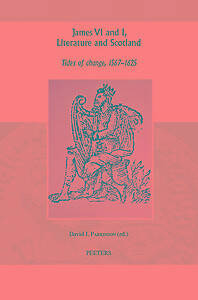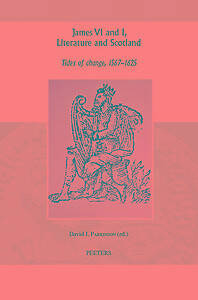
- Afhalen na 1 uur in een winkel met voorraad
- Gratis thuislevering in België vanaf € 30
- Ruim aanbod met 7 miljoen producten
- Afhalen na 1 uur in een winkel met voorraad
- Gratis thuislevering in België vanaf € 30
- Ruim aanbod met 7 miljoen producten
Zoeken
James VI and I, Literature and Scotland
Tides of Change, 1567-1625
€ 54,00
+ 108 punten
Omschrijving
This volume offers a broadly conceived sequence of perspectives on cultural change, principally in Scotland and from Scottish perspectives, during the long reign of King James VI and I. The contributors to this volume include established and new scholars in early modern history and literary studies from Italy, the Netherlands, and the United Kingdom, as well as Canada and the United States. From the perspectives they provide, the cultural changes of the reign of James VI and I emerge out of a colloquy between the king and his realms, a colloquy in which each of the participants is undergoing a transformation. The essays in this volume explore the locations and circumstances in which literary activity proliferates around and beyond James's court. They also shed light on Scottish culture after James's accession to the English throne in 1603. The contested phenomenon of Scottish literature in the latter decades of James's rule warrants attention by those who are interested in cultural change as a means of adaptation to political dislocation. The evident experimentation in new and traditional literary forms is arguably such a means, as is the elaboration of stylistic affinities between allied writers. At various points in Scottish society at the outset of the seventeenth century, such experiments and affinities have their own sustaining and transformative value.
Specificaties
Betrokkenen
- Uitgeverij:
Inhoud
- Aantal bladzijden:
- 401
- Taal:
- Engels
- Reeks:
- Reeksnummer:
- nr. 47
Eigenschappen
- Productcode (EAN):
- 9789042926912
- Verschijningsdatum:
- 26/04/2013
- Uitvoering:
- Hardcover
- Formaat:
- Genaaid
- Afmetingen:
- 168 mm x 246 mm
- Gewicht:
- 816 g

Alleen bij Standaard Boekhandel
+ 108 punten op je klantenkaart van Standaard Boekhandel
Beoordelingen
We publiceren alleen reviews die voldoen aan de voorwaarden voor reviews. Bekijk onze voorwaarden voor reviews.






